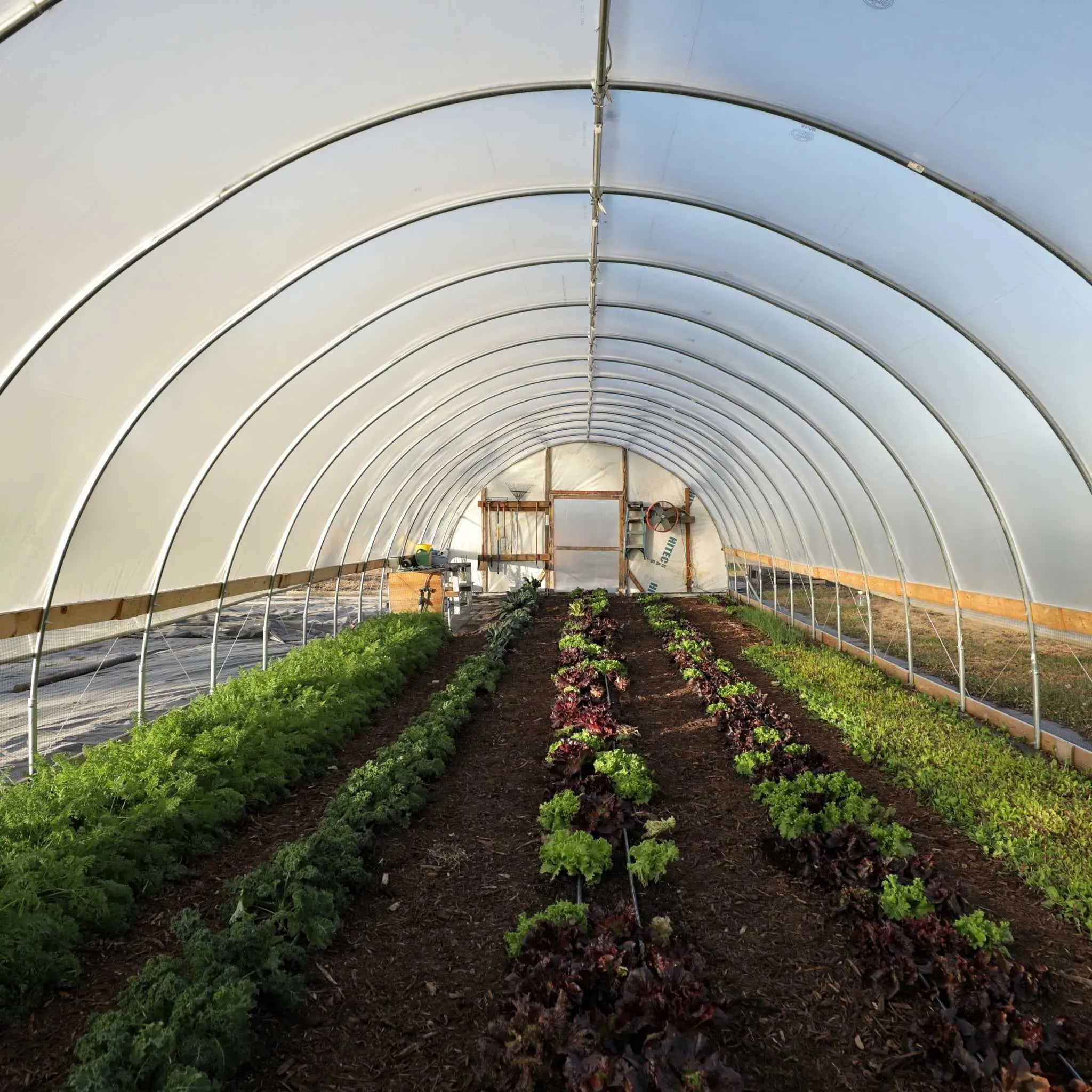Residential Oasis: Monarch Residential Greenhouse Utah Haven for Plant Kingdoms
Greenhouse Farming: Taking Full Advantage Of Crop Returns and Sustainability
Are you seeking to maximize your crop yields while promoting sustainability? Look no more than greenhouse farming. With regulated atmospheres and decreased water usage, greenhouse farming provides the perfect remedy for year-round production of fresh produce. By utilizing the power of technology and sustainable methods, you can guarantee a plentiful harvest while decreasing your ecological impact. Discover the advantages of greenhouse farming and begin gaining the advantages today!
Advantages of Greenhouse Farming
Are you questioning what makes greenhouse farming so beneficial? One of the significant benefits of greenhouse farming is the ability to regulate the environment in which crops are grown.
Another advantage of greenhouse farming is the reduction in water usage. By using water much more effectively, greenhouse farming helps to preserve this valuable source.
Furthermore, greenhouse farming enables far better bug and condition administration. With the controlled environment, it is less complicated to protect against and regulate the spread of insects and illness. This lowers the need for damaging chemicals, making greenhouse-grown plants safer and more eco pleasant.
Furthermore, greenhouse farming offers defense against extreme weather events. Crops grown in greenhouses are protected from hefty rain, solid winds, and hailstorms, which can damage or destroy outside plants. Monarch Greenhouse Utah. This security makes sure an extra secure and trustworthy crop return, even throughout unpredictable climate condition

Taking Full Advantage Of Plant Yields With Controlled Atmospheres
To maximize crop yields in greenhouse farming, you can attain ideal outcomes by regulating the setting. By meticulously managing elements such as temperature level, carbon, light, and humidity dioxide degrees, you can develop the best problems for your crops to thrive. One of the crucial advantages of greenhouse farming is the capability to regulate these environmental factors, allowing you to customize them to the specific requirements of each crop. You can adjust the temperature level to promote faster growth throughout the day and lower it somewhat at evening to imitate natural fluctuations. Similarly, you can control humidity degrees to protect against illness and ensure appropriate transpiration. By supplying the ideal amount and high quality of light, you can expand the growing period and increase yields. Additionally, by managing co2 levels, you can improve photosynthesis and encourage energetic development. By executing these regulated atmospheres, you can make best use of crop returns and attain constant, premium fruit and vegetables throughout the year.
Encouraging Sustainability Through Greenhouse Farming
Take full advantage of sustainability in greenhouse farming by executing effective source monitoring techniques. One essential aspect of promoting sustainability is the management of water use. By implementing systems such as drip irrigation and recirculation, you can substantially lower water wastefulness and guarantee that every drop matters. In addition, utilizing natural and eco-friendly products for bug control and fertilizing can aid lessen ecological impact. Integrated Pest Management (IPM) strategies, for instance, entail making use of helpful insects to manage pests, lowering the requirement for unsafe pesticides. Additionally, power intake can be reduced by utilizing renewable energy resources, such as solar panels, to power greenhouse operations. This not only lowers reliance on nonrenewable fuel sources yet also lowers greenhouse gas emissions. Appropriate waste administration is one more critical component in advertising sustainability. Executing recycling and composting systems can lower the amount of waste sent to landfills while also supplying nutrient-rich compost for plant growth. Last but not least, including lasting techniques in greenhouse layout, such as utilizing energy-efficient materials and optimizing natural lighting, can even more enhance sustainability. By taking on these source administration strategies, you can add to a more sustainable future in greenhouse farming.
Lowering Water Use in Greenhouse Farming
By carrying out effective water administration techniques, you can substantially lower water usage in greenhouse farming. Water is a necessary resource in farming, and preserving it not only benefits the atmosphere yet likewise aids to make the most of plant returns and profitability. One efficient technique to decrease water usage is with the use of drip irrigation systems. These systems provide water straight to the plant's roots, decreasing dissipation and guaranteeing that grass floor every drop is utilized successfully. In addition, surveillance and managing the humidity levels inside the greenhouse can stop unnecessary water loss. By utilizing sensing units and automated systems, you can readjust the ventilation and irrigation accordingly, optimizing water usage based on the details requirements of your plants. An additional strategy is to recycle and record rain. Gathering rain from the greenhouse roof and keeping it in containers enables you to supplement your irrigation needs without counting only on freshwater sources. In addition, implementing mulching techniques can help keep dirt moisture, minimizing the regularity of watering. Mulch work as a barrier, preventing water evaporation and maintaining the dirt cool and moist. By adopting these water-saving methods, you can decrease water waste, save sources, and develop a much more lasting future for greenhouse farming.
Year-Round Production of Fresh Create in Greenhouses
You can attain year-round manufacturing this link of fresh produce in greenhouses by carrying out efficient farming techniques. Greenhouses give a controlled setting that permits you to expand crops despite the outside weather condition problems. One vital strategy for year-round production is utilizing fabricated lights. By supplementing natural sunshine with man-made light, you can extend the expanding duration and guarantee regular growth throughout the year. LED lights are generally used in greenhouses due to the fact that they are energy-efficient and offer the best range of light for plant growth. Furthermore, correct temperature level control is crucial for year-round production. Greenhouses can be equipped with home heating and cooling systems to preserve ideal temperatures for different crops. This ensures that plants can flourish also during the chillier months. An additional important aspect is watering. By using innovative irrigation systems such as drip watering or hydroponics, you can efficiently provide water to your plants while decreasing waste. It is necessary to regularly keep an eye on and handle illness and insects. Carrying out integrated parasite management approaches and exercising great hygiene will help safeguard your plants and keep their health throughout the year. By implementing these strategies, you can maximize the performance of your greenhouse and enjoy a constant supply of fresh generate all year long.

Final Thought
Finally, greenhouse farming provides many benefits for making look at this website best use of crop returns and promoting sustainability. By using regulated settings, farmers can optimize growing problems and increase efficiency. Additionally, greenhouse farming enables minimized water usage, making it an eco-friendly selection. The capability to produce fresh produce year-round in greenhouses ensures a stable supply of nutritious food (Monarch Greenhouse Sheds Utah). Overall, greenhouse farming is a lasting and efficient approach for satisfying the demands of an expanding populace while minimizing ecological effect.
One of the significant benefits of greenhouse farming is the capacity to manage the setting in which plants are expanded.To maximize plant returns in greenhouse farming, you can accomplish optimal outcomes by controlling the environment. One of the crucial advantages of greenhouse farming is the capacity to control these ecological variables, enabling you to customize them to the specific needs of each plant.By carrying out effective water monitoring techniques, you can substantially reduce water use in greenhouse farming.In verdict, greenhouse farming offers countless benefits for making best use of crop returns and advertising sustainability.